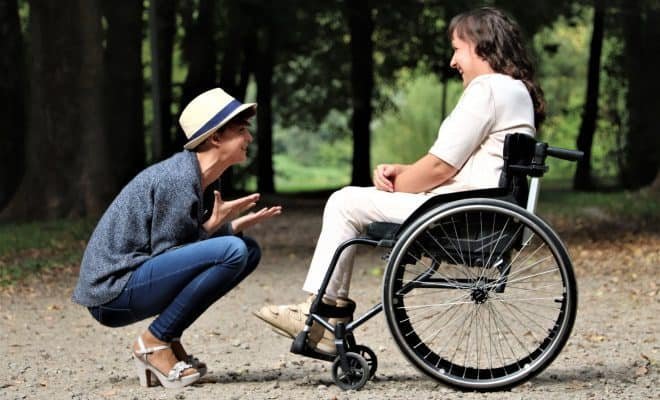Accepting Means Respecting

“There is more inclusion everywhere now. People aren’t less awkward about it. You must be happy.”
“It is great. I don’t want to feel accepted though. I want to feel respected.”
Can you relate to this? Do you ever feel you haven’t received full social acceptance?
Since January 20th is International Day of Acceptance, I want to share what social acceptance means to me. The purpose of International Day of Acceptance is to promote the social acceptance of disabilities. It is also dedicated to Annie Hopkins, founder of 3E Love and creator of the International Symbol of Acceptance. The symbol is a wheelchair shaped like a heart, and it unifies people of all abilities. According to the 3E Love website, Annie had spinal muscular atrophy, and she died on January 20, 2009 from unexpected complications that led to an infection from a simple procedure.
I feel the most accepted socially when I am recognized as an individual rather than an individual with a disability. Many people are still not used to seeing fully functioning disabled individuals living ‘normal lives.’ As much as I love attention and praise, it is annoying to have somebody pretend to be comfortable with the differences. If I go to a restaurant, bar, or dance club, there is usually one person who ends up being too nice or accommodating. I have lost count of how many times a person offered to pay my check or tab.
“Yo, make room. Hot Wheels needs a good spot.”
“I am just so drawn to you. Can you treat?”
“My (family member) is disabled too. God bless.”
It is like trying to hide your unicorn horn while you are chilling in a stable. I don’t mind the recognition, but I don’t need or want special treatment everywhere I go, especially when I am out dancing relieving my frustrations of being ‘special.’ I’m just trying to be a regular person with regular goals. So, I encourage you to practice social acceptance by giving disabled individuals the respect to live their own ‘normal’ lives.








